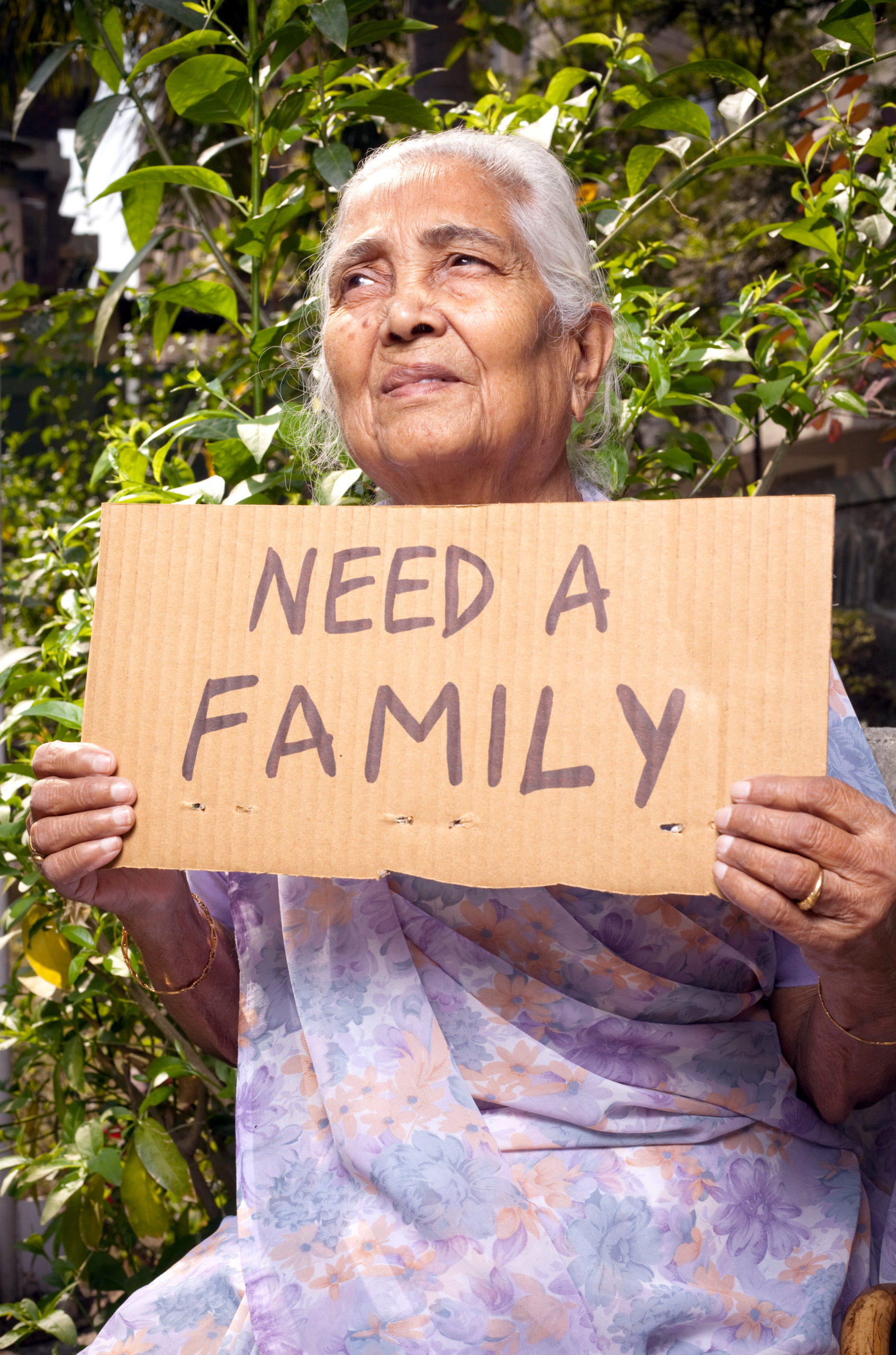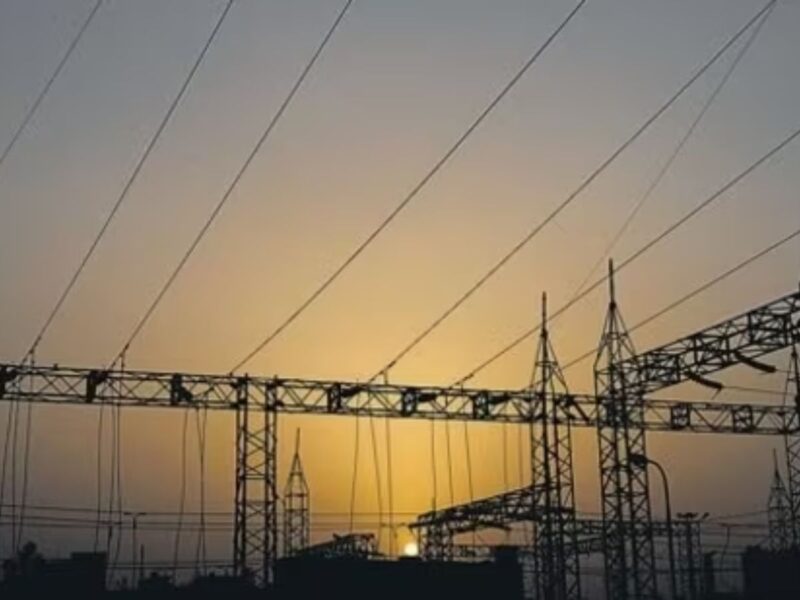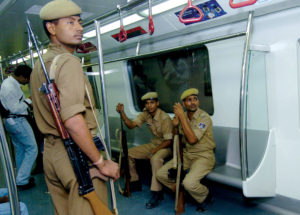The number of women being abandoned by their sons is increasing at an alarming rate while daughters are seen making huge sacrifices to provide care to their old mothers when they become old and helpless
As I was giving a coin to a young woman pleading with folded hands at the car window, my aunt reprimanded me. “See who is asking for the alms first,” she said. “Young people can work. Children should not be out on the streets begging. Very old men and women are the most deserving, they have nobody to look after them.” I noted the difference and tried to follow her strictures even when she was not looking over my shoulder.
Did she have a premonition of an unseemly drama already unfolding in her life? Five years ago, for the first time, I realized that People Like Us, perfectly capable of looking after our elders, are now abandoning them or treating them cruelly. Abandonment occurs even when an elderly couple is made to feel unwanted, a phenomenon that only came out in the open after the movie Baghban featuring Amitabh Bachchan and Hema Malini was released. Then, we tut-tutted at the cruelty of young people who split up the couple so that they would not be a double burden on the sons who were going to host them turn by turn. But it was still a story happening to other people, in other families.
Such tragedies are now coming home. The same aunt who would earlier come to stay for a few days if her son and daughter-in-law had to go away for some reason, came this time with a sad story to tell. After a few days, she said that her son had basically told her to go wherever she wished, to an old age home if necessary. Her daughter had been hosting her but space in her apartment was limited and my aunt’s grandson was giving his Board exam, so her daughter had asked her to stay away for six months. She had nowhere to go. I could only say she could stay still things sorted themselves out, and that if they wanted her to go to an old age home, they would have to make the arrangements. What was she expected to do, at 80 plus, get into a taxi and check herself in?
What cruel twist of character made her son send her away like this? The son was anyway an unsociable guy, unnecessarily rude and short-tempered, unwilling to help others in the extended family despite having a government job. The daughter was sympathetic and the son-in-law quite willing to help, but everyone seemed to have come to a strange juncture where they could not cooperate to put together a satisfactory living arrangement. They had just given up on a housewife who was now touching 80, without the mental reserves or courage to carve out her own niche in the world.
After all the tears and months of uncertainty, the son took her back without a word of explanation. Even if one is going through some kind of personal crisis, surely an amicable agreement between the two offspring would have prevented so much mental torture and heartbreak.
If this had been an isolated incident, it would not have been so bad. But increasingly, one finds that educated, well-to-do couples have no place in their lives or their houses for an old mother. Apparently, when the old father is alive, the couple is still afforded some dignity, some semblance of care. But a woman alone, a mother who never thought she had to make her own arrangements at 80 plus, is often finding herself unwanted.
Curiously, daughters don’t seem to be giving up on their mothers. A cousin nursed her mother through an astonishing 30 years of depression as her brothers lived their successful lives abroad. A friend looked after her old mother religiously through the pandemic, not allowing any domestic workers due to the threat of infection. Dementia has meanwhile robbed the relationship of the usual warmth. Another cousin personally performed dialysis for her ailing mother three times a week, that too at home without any help, for at least five years. The difference, probably, is that they can provide the care themselves whereas sons would have to ask the daughter-in-law, and she doesn’t feel the same sense of devotion and dedication to the old lady.
We used to think that our cousins who became NRIs and often married foreigners, had to be excused from the duty of looking after their mothers in the evenings of their lives. We would shrug and say that they had become part of the materialistic West, where human relationships were not so important and old people were expected to either manage independently or enter an assisted living facility. When I was studying in the US, foreign students like us were allotted a local guardian who would drive us around to see the sights or invite us for a meal away from the campus. It was heart-rending to see the old lady, 80 plus who couldn’t see properly driving around, maintaining her house and garden without the kind of domestic help we are used to in India.
Agreed that NRIs escape into another kind of world and the US and Australia are so far away that they can’t make a trip more than once a year. But we Indians based in India, why can’t we look after our own? One reason is that when a young couple falls in love and gets married (as opposed to going for an arranged marriage), the young bride is not beholden to her mother-in-law for ‘choosing’ or ‘accepting’ her. Even if they live together, the old equation where the mother-in-law wields power and the daughter-in-law must learn to fit in, no longer holds. The hierarchy has been upset. The wife also has more control over her husband, and when the wife disapproves of hosting the old lady, her word seems to be final.
But how do sons manage to scotch their emotions or reconcile in their own minds the neglect and abandonment of their mothers? Laws have been made that old people cannot be abandoned by their offspring but how many 80+ housewives know this or would actually engage a lawyer to get their rights restored? When the old ladies are financially secure, there seems to be more licence to leave them to their own devices. But there are instances I know of old people whose children did not even ask them if they can manage, choosing to turn a blind eye to their predicament.
I know of a son who has used the excuse of Covid to prevent his mother coming home for the last two years. She is shuttling between her siblings as the other son is in the US and she no longer has the courage to travel so far alone. These old aunts smile through it all, accepting their fate, while those who host them are outraged that this can be happening in our kind of families. Every nuclear family is on its own, and there are no elders who can sort out these issues. O wait: it is these very elders who, instead of having a place of respect in the family are now out on their own, having to swallow the humiliation of being abandoned when they need the care and company of their youngsters the most.
One wonders: Where has the famous Indian culture gone? Does one now have to introduce a class on family ties in school? Shouldn’t there be TV discussions and chat shows on the subject? Or do the old people deserve this fate because they gave too much of themselves to the family and did not start planning for old age when they crossed 50? It’s amazing that there has been no film like Baghban again, which is really needed if popular culture has to come to grips with a phenomenon that is spreading its tentacles slowly in our society, allowing inhuman behaviour towards the “Ma!” whom Hindi film heroes worshipped like goddesses and valued as a treasure equal to “bangla, gadi, naukar-chakar” and other material possessions.





